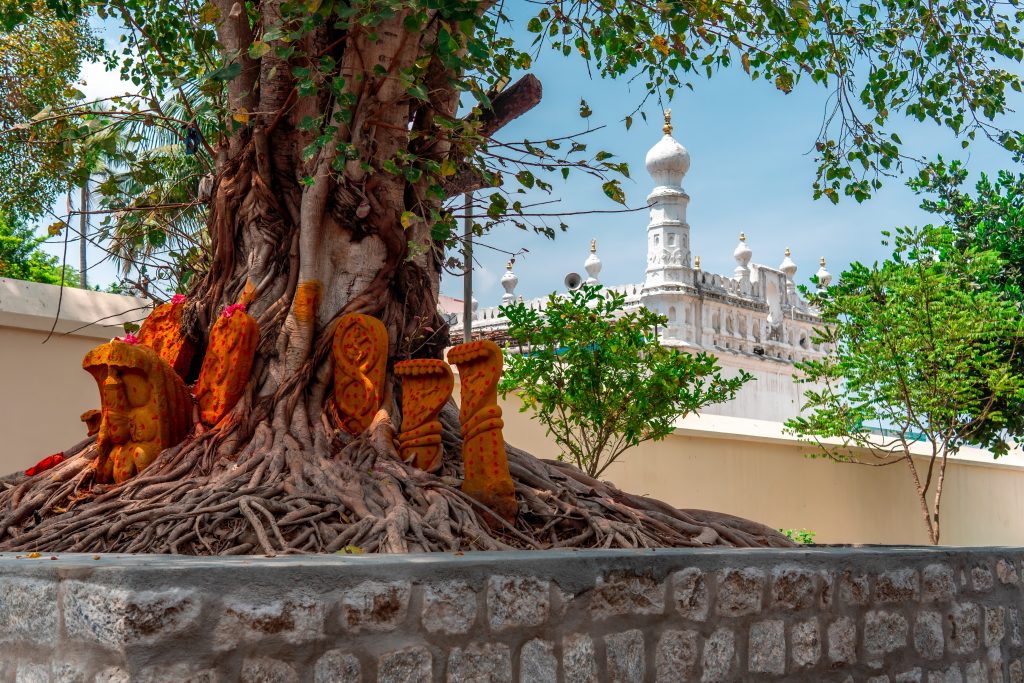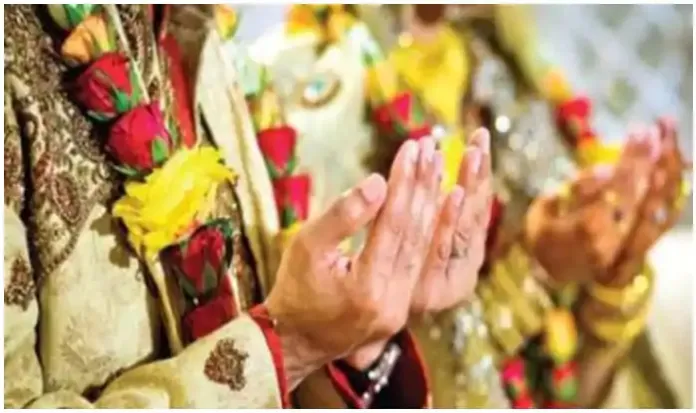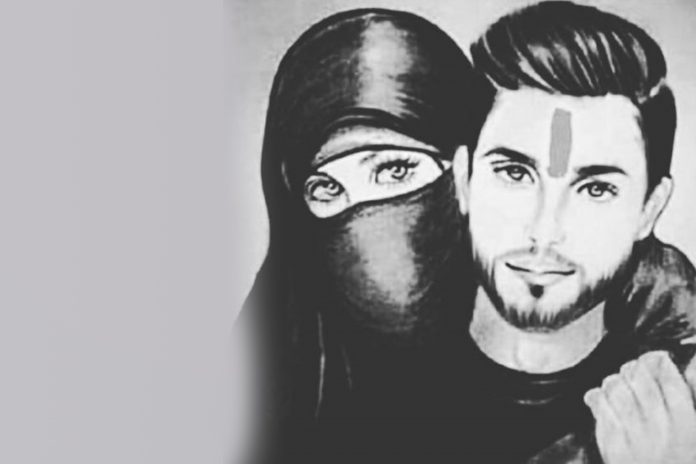Reading Time: 6 minutes
Alok and Alia, two youngsters in their mid-twenties, pride themselves as great grandchildren of the midnight’s children, an eponymous and famous novel by Salman Rushdie, and destiny’s children, a science fiction series by Stephen Baxter. Literature students that both Alok and Alia were, they were fascinated by the theme of cohesion and disparity between the singularity of the individual and the plurality of the society in the former and the evolution of people physically, psychologically and sociologically in the latter.
Alok Mehra’s and Alia Murad’s great-grandparents were from conservative religious middle class families with abiding faith in the inenarrable phenomenon called the Supreme. Both the families had emphasised on learning and wisdom as against conventional education and were brought up in a clime of ethics, integrity, mutual respect and live and let live principles. Alok’s and Alia’s ancestors were respectively from the sister cities of Lahore and Amritsar, also called as the twin cities in the undivided India of yore. Their great grandparents were in the civil services in their respective cities, but the government work would often bring them together, which eventually morphed into close family relationships with frequent family visits to each other’s homes.
Their ancestors’ idyllic lives had been thrown asunder and devastated by the run up to the end of the British rule and the blood and gore of the partition of India in 1947. Amongst the pervading animosity and bloodshed, both the families had lost many of their loved and dear ones, not just relatives but close friends too. The uncertainties and fears of the times were testing times for Alok’s and Alia’s ancestors. It had been heart rending and devastating for them to be dis-housed and displaced from their ancestral homes in Lahore and Amritsar and forced to flee across the border. Alok’s ancestors were fortunate to be able to cross over to Amritsar, while Alia’s ancestors could not cross over to Lahore, stymied by impossible hurdles and implacable hearts. Perhaps it was destiny at play that both the families, friends for long in the undivided India were thrown together in Attari, a border town mapped to India by the irrational Radcliffe line and could continue to be friends for longer and succour for each other in the partitioned India.
 The families had come a long way since the harrowing refugee days of 1947. Given their respective backgrounds, though deprived of their roofs and meagre belongings, their ancestors could manage with decent government jobs in India and eventually settled down in the culturally rich and historic city of Lucknow. As past residents of Lahore and Amritsar, several of Lucknow’s features, cuisines and cultures resonated well with Alok’s and Alia’s great grandparents.
The families had come a long way since the harrowing refugee days of 1947. Given their respective backgrounds, though deprived of their roofs and meagre belongings, their ancestors could manage with decent government jobs in India and eventually settled down in the culturally rich and historic city of Lucknow. As past residents of Lahore and Amritsar, several of Lucknow’s features, cuisines and cultures resonated well with Alok’s and Alia’s great grandparents.
The two families nourished and cherished their shared history and destiny and ensured that their bond and friendship permeated and strengthened down their families’ generations with osmosis of values and flowering of virtues. If the horrors of the past were a catalyst, the peace of the present was the cement between the two families. Yes, the Supreme had tested them pre partition, but also rewarded them post partition. Life was idyllic for the Murad and Mehra families, each basking in the others’ glory. Little wonder Alok and Alia felt the way they did.
Alok and Alia had excellent foundation and education at Spring Dale School and La Martiniere College and by happy happenstance, were classmates through their learning journey. The enriching learning environs of these hallowed institutions had a salutary impact on them with both developing interests in literature and philosophy as well languages like Sanskrit and German, besides their own mother tongues of Hindi and Urdu. They could develop only passing interests in sports and never could pursue any game tenaciously or stay the course. The constant companionship through family times and learning journey and of course shared interests soon became a matter of hearts between them and eventually an actively encouraged Murad and Mehra family affair.
Alok and Alia, endowed as they were academically and culturally, besides being social active and networked, as a part of their college project had to develop a portal for counselling the youth in matters of learning and loving, so that they could become productive citizens with balanced personalities. Over time, the counselling portal, aptly named “GyanPyaar”, became a rage with a wide following not just in Lucknow, but across India. Alok and Alia managed to run it as a non-profit social enterprise, with their modest corporate salaries, but were soon supported financially by voluntary donations from the thankful youths who benefitted from their sagacious and empathetic counselling. They had a huge fan following on Facebook, Instagram and LinkedIn and were seen as influencers by the Gen Z and Gen Alpha besides the political class and corporate biggies.
 Brought up in an atmosphere of love and respect by their families, Alok and Alia were extraordinarily disturbed by the random instances of skirmishes between religious zealots and groups, not just in Lucknow and sundry odd places in UP, but also in other states. What they found more horrific was the public lynching of cross-religion young lovers, ex-communication by gram panchayats, familicides and honour killings. These were overwhelming and beyond their young but mature minds. Have people forgotten the gory past leading to the tryst with destiny, they wondered. They had to do something to stop this madness. But they were not sure how, specks that they were in the 1.4 billion Indian populace.
Brought up in an atmosphere of love and respect by their families, Alok and Alia were extraordinarily disturbed by the random instances of skirmishes between religious zealots and groups, not just in Lucknow and sundry odd places in UP, but also in other states. What they found more horrific was the public lynching of cross-religion young lovers, ex-communication by gram panchayats, familicides and honour killings. These were overwhelming and beyond their young but mature minds. Have people forgotten the gory past leading to the tryst with destiny, they wondered. They had to do something to stop this madness. But they were not sure how, specks that they were in the 1.4 billion Indian populace.
The only thing they could do was to use their popular portal to disseminate messages of positivity and stories of amity to the masses and hope that these cascade and seep deep across India. They created a hashtag #PyaarMohabbat to post their messages and stories. These started eliciting massive responses and spread like wildfire. It got the attention of the political and the police class who started taking preventive steps in sensitive areas to mitigate and prevent such instances. Thousands of NGOs soon got into the act and several of them partnered GyanPyaar in rural areas in counselling and supporting families of young couples in cross-religion relationships. It was an endless struggle needing tenacity of purpose and tap of resources to maintain the social pressure. But Alok and Alia were determined to be at it and were willing to do anything to make people sit up and take notice to get rid of the malice. There were many misguided youth and bigots out there in the world and it was getting to be a struggle. What can individuals do when the state has failed to stop the atrocities. Tired and enervated, Alok and Alia called it a day that Thursday. Friday would be a new day with new ideas, the eternally hopeful souls that they were.
 Alok and Alia had a habit of visiting a temple and a mosque together every Friday morning, a day considered as auspicious both by the Hindus and Muslims. But they both skipped the ritual the next day and went out on their own citing some reasons. Both were out through the day and both were curious about what the other was doing. Neither knew where the other had gone. Neither did their respective families know anything. But it was to be a long wait that day before they could meet and narrate the events of that day.
Alok and Alia had a habit of visiting a temple and a mosque together every Friday morning, a day considered as auspicious both by the Hindus and Muslims. But they both skipped the ritual the next day and went out on their own citing some reasons. Both were out through the day and both were curious about what the other was doing. Neither knew where the other had gone. Neither did their respective families know anything. But it was to be a long wait that day before they could meet and narrate the events of that day.
Alok had gone to the Jama Masjid and met the imam to perform certain rituals. Alia had gone to the Mankameshwar temple and met the pujari to perform certain rituals. Both were true to their love for each other and faith in each other and did what they had to do and send a message to the society. Alok Mehra had converted to Islam and changed his name to Ali Murad, Alia Murad had converted to Hindu and changed her name to Aloka Mishra.
Ali and Aloka just walked the talk. After all, their GyanPyaar had to have a compelling story to post and tell. It was indeed a Murad and Mishra family affair.









Awesome! Well written Nagesh

Comments are closed.